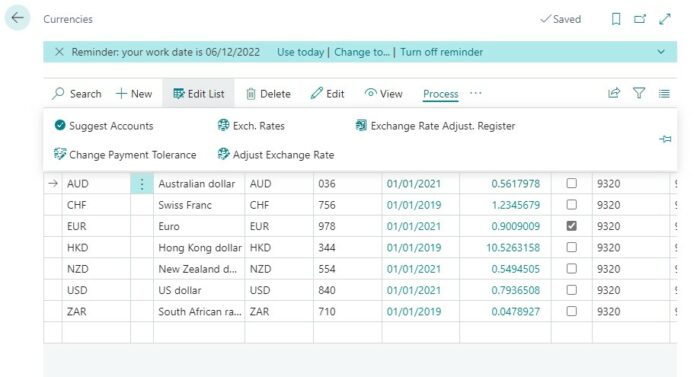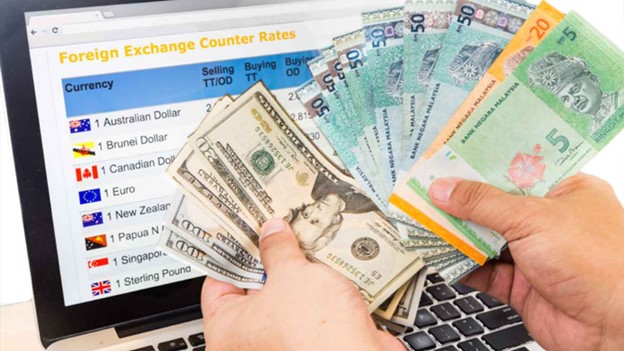If you're involved in travel, investment, or business activities It is important to know the difference between online and local rates. Local rates are exchange rates that are available at physical currency outlets banks, ATMs, and banks close to your home or destination. Online rates refer to the exchange rates provided by digital platforms and financial institutions. They vary greatly, and can impact how much money you spend to exchange currency or the return on your investment. Knowing the difference between local and online rates can assist you in making better decisions, which can reduce your expenses. The top ten ways to navigate local and online rates efficiently are listed below.
1. Understanding the differences in rates
Local exchange rate can be very different from the rates on the internet. This is due to a variety of factors like overhead costs as well as market conditions and demand. Local exchanges may charge higher fees and offer less favorable rates, due to the operating costs. Online platforms offer lower overheads that often result in better rates. When you know the differentiators, you can pick the most appropriate choice for currency exchange.
2. Compare Rates Prior to Changing Currency
Compare the rates of both online and local before exchanging currencies. To compare rates in real time, use website or currency converters. If you are traveling to another country, you can look up the exchange rate on the internet, and then compare it with what the currency booths and banks have in the area. This will assist you to save money as well as identify the best solution.
3. Utilize Online Currency Exchange Platforms
Online currency exchange platforms such as Wise (formerly TransferWise) and copyright typically offer more attractive rates and lower costs compared to local banks and exchange kiosks. They offer real-time rates and transparent fees. Through these services, you can ensure that you are getting the best possible deal in converting currencies.
4. Be aware of dynamic currency Conversion.
When you buy items overseas, the option might appear to pay with your own currency by using Dynamic Currency Conversion. While this is a convenient option but often has unfavorable rates of exchange as well as additional fees. Pay in the local currency to avoid the high fees charged by DCC and enjoy lower rates.
5. Compare Cost and Convenience Take into consideration cost vs. Convenience
When choosing between online and local rates take into consideration the price versus the convenience. Local exchanges offer instant access to cash that can be useful while traveling. Online exchanges may offer better rates than local ones however, you might need to establish an account or wait for money. To figure out the best choice for you, consider your requirements based on your business or travel plans.
6. Watch Exchange Rate Trends
Monitoring trends in exchange rates can help you make informed decisions about when to convert your currency. Online platforms often provide historical data and analytical tools that let you track fluctuations in exchange rates. If you are aware of trends in the market, you can time your currency transactions to benefit from favorable rates.
7. Compare ATM fees and local withdrawal limits
- If you decide to cash out at an ATM while traveling be aware of any fees associated with withdrawing cash locally. Different banks can charge charges for international transfers and ATMs might have their own limits on withdrawals. Before you travel, do some research on local ATMs to ensure that you are getting the best rate and lowest fees.
8. Free Currency Exchange Service
A few online platforms, as well as banks, provide free conversion of currency for their account holders. This is an excellent advantage for business travellers or those who deal frequently in foreign currency. Establishing an account will allow you to enjoy lower rates and a better service, which will help maximize your cost savings.
9. Consult Financial Experts for Large Transactions
If you deal with large amounts of money or exchanges that are complicated seeking advice from financial specialists can be very useful. Experts in currency can offer insight into the most effective methods for dealing with local and online rates effectively. It is crucial for international investors or companies to be aware of their exposure to currency.
10. Plan ahead for currency needs
Making plans ahead can help you save time and money, whether traveling for business or on vacation. Decide how much money you'll require for your trip, choose the most appropriate exchange rate. If the local exchange rate isn't favorable, convert your money online prior to leaving. You'll receive higher rates and will not lose money.
You can make better decisions regarding currency exchanges by utilizing these guidelines. This applies no matter if you're traveling performing business or managing investments. Knowing the advantages and drawbacks to each method will help you make more informed financial decision. This can end up saving you money as well as improve your overall financial plan. Take a look at the top rated dollar blog for more tips including aud to usd, usd to chinese yuan, us dollar in indian rupees, us dollar to colombian peso, dollor to inr, usd to pakistani rupee, us dollar to mexican peso, usd to inr, usd to mxn, mexican peso to usd and more.

Ten Suggestions For Selecting The Correct Currency In Your Destination Country With Rates And Exchange Rates
Understanding destination currency is crucial for anyone who is traveling overseas, conducting business internationally, or managing investments in foreign markets. The currency you are using is the local currency of the country you're traveling to, or with whom you've entered into an engaged. It could affect your financial decisions. The fluctuation of the exchange rate and conversion fee as well as the overall economic climate can influence how much you travel, as well as the profitability of business deals and investments are. By gaining a better knowledge of the currency used in your destination and the exchange rate, you'll be able to make more informed financial decisions. Here are the top ten specific guidelines for managing destination currency in your financial endeavors.
1. Study the currency of the country Before Traveling
Learn about the currency in the local currency prior to you travel to a new location. You should also familiarize yourself with the different denominations of currency and their equivalent value to your personal currency. This knowledge can help you better manage your finances and prevent overpaying for services and goods. Websites like XE.com provide real-time rates and historical data that can help you determine how much money will cost in foreign countries.
2. Review exchange rates prior your departure
The monitoring of these changes can help you decide on the most suitable moment to exchange your money. You can set alerts using software and tools for tracking currency to receive notifications whenever the exchange rate becomes favorable. If you see a decrease in trend, you should exchange your currency earlier in order to maximize the buying potential of your travel.
3. Currency Conversion Costs to be considered
The cost of currency conversion differ widely between banks, currency exchange services, and ATMs. Be aware of the costs that are associated with the conversion of your home currency into the currency you'll be using, since they can add to your budget. Find rates from various providers and benefit from websites that have less fees and lower exchange rates.
4. Make use of local currency to make Transactions
Making payments in the currency of your home is not the ideal choice when making purchases overseas. The utilization of the currency you have at home is usually associated with dynamic currency conversion (DCC), and this can lead to a poor exchange rate and higher fees. You could benefit from higher exchange rates when you pay in the local currency.
5. Plan your Cash Needs in the future
While most countries accept credit or debit cards, it's essential to have some cash on hand for small purchases, tips or places where credit cards aren't accepted. If you intend to use ATMs overseas be sure to research fees and withdrawal limitations. You might want to withdraw large amounts of cash at once to reduce transaction costs. It is convenient to have local currency readily available will make your life easier when traveling, and will help you avoid any inconveniences.
6. Learn about Local Payment Preferences
Different countries may have different payment preferences. Cash is the preferred method in certain countries, however digital payments and credit cards are more popular in other countries. Learn about the payment habits of your local area to find out what's most commonly accepted. This will help you plan payment methods and ensure that you have the tools you need to complete transactions without issue.
7. Business Currency Risks: Be Alert
If you're operating a business overseas be aware of risk of currency fluctuations that can be triggered by fluctuating exchange rates. An abrupt change in the exchange rate of the foreign currency could negatively impact profits margins and your overall performance as a company. Employ hedging strategies, such as forward contracts to secure future exchange rates and minimize possible losses due to currency volatility.
8. Keep track of Your Spending
To stay within your budget for travel, it's essential to track your expenditures in the currency you will be using. Budgeting software and detailed expense reports can help you track the currency you spend in your local area. This will prevent you from spending too much, and you'll have enough cash to last for the duration of your trip.
9. Financial Regulations: You Should Be aware of your rights
Different countries have different rules regarding the exchange of currencies, cash transactions, and reporting obligations. Make sure you are familiar before you travel or conduct any business in accordance with these rules. For example, some countries may have limits in the quantity of cash you may take into or out, whereas other countries may require you to declare large transactions. You can navigate these regulations more easily if you are informed.
10. Consult a specialist in currency to assist with Investments
Consider consulting with currency specialists or financial advisors if your investment portfolio includes foreign markets. They can provide important insights into the effect changes in the currency of your portfolio of investments and can help you develop strategies to manage risk associated with currency. Their experience can be extremely valuable in understanding the complexity of the currencies you are destined to and maximizing your financial performance.
With these helpful tips on managing destination currency and managing the complexities of traveling for business, conducting business, and monitoring investments more effectively. Understanding the ramifications of managing currency will enable you to make financial choices that align with your goals and enhance your overall financial strategy. Have a look at the top linked here for CZK to EUR for site info including rs to usd, british pound to dollar, currency exchange near me, usd to chinese yuan, baht to usd, usd to cop, usd to indian rupees, usd to peso, usd to indian rupees, dollar to euro and more.
